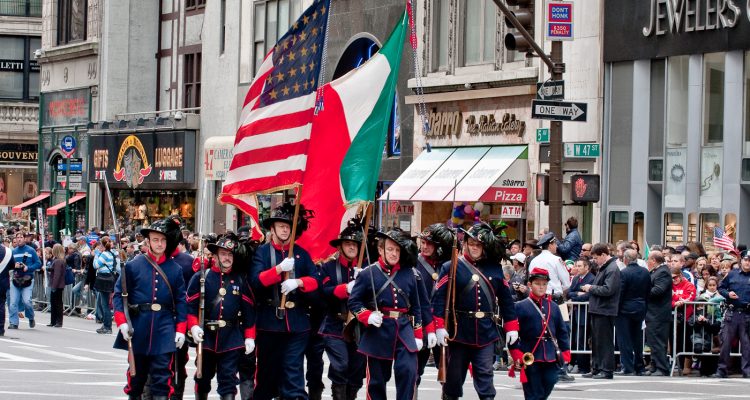On a normal twelfth day of October, I’d stay in bed all day, only to emerge for coffee, flicking through the paper and then crawling back into bed. It is a full Monday off just to celebrate Christopher Columbus, a man known for “discovering the new world” and a cute little rhyme sung by children all across the nation. Yet, there’s always been discourse on whether we should continue to celebrate this day, and continue to call it Columbus Day.
Why is this, you might ask? How could the man who discovered America and brought fame to the Italian-American immigrants oppressed in the early part of the 20th century be bad? How could he not be someone worth celebrating?
Well… first of all… he was totally not the first person to discover America. How could you discover something that was always there in the first place? Historians actually believe it to be a Viking named Leif Eriksson, who popped over and discovered this new land, oh, just half a millennium sooner than Columbus. The Vikings didn’t stay long, as there was always a bit of conflict between them and the Native Americans, and Eriksson’s own brother was killed during one conflict. But, still, he beat out our man Christopher!
There’s also the whole issue with Columbus’ treatment of the Native Americans. Treatment in this case refers to the way that he saw them as nothing more than an obstacle, or a disposable workforce that could do his bidding in the gold mines or make him money when he brought them back home to sell. Those who refused to work were threatened with torture, loss of a limbs or even death. This treatment, coupled with the diseases Colombus and his men brought with them, eventually surmassed a genocide so large that 90 percent of the original population was gone.
So, how’d we get here? How did we begin to celebrate this man?
As always, there’s a lot of misinformation about Columbus. The story of his atrocities didn’t become widespread until, I feel, incredibly recently. You know that whole idea about how most people during this time believed the earth was flat, until Columbus sailed around and proved them wrong? Yes? Well, it’s not true.
In 1828, Washington Irving published “A History of the Life and Voyages of Christopher Columbus.” This book tells the story of the adventurous man, fair to the natives and a discoverer of the round earth. None of this was true, but it did introduce a country to this figure, a revolutionary in his own right, a hero.
Even if this wasn’t true, he became a hero for the Italian-American immigrants. They were subjected to horrific xenophobic sentiment, which often led to actual violence. 11 Sicilian men were lynched in 1891, even though they were found not guilty of the crime before their death.
Just a year after this incident, President Benjamin Harrison proclaimed a remembrance of Columbus’ journey to America, filled with a lot of that wrongful patriotism that came from Irving’s incorrect biography.
“Columbus stood in his age as the pioneer of progress and enlightenment,” Harrison said. “Let the national flag float over every schoolhouse in the country and the exercises be such as shall impress upon our youth the patriotic duties of American citizenship,” he continued.
It took another few decades before it was named a national holiday. In 1934, under the presidency of Franklin Roosevelt, Columbus Day was official. So, I got a day off from school, an extra few hours for some coffee, and an over-glamorization of a man who caused hundreds of thousands of deaths.
So, where do we go from here? An alternative that many cities have taken on is Indigenous Americans Day. In 2015 a unanimous decision by the Bridgeport, CT school board renamed Columbus Day, “Indigenous Peoples’ Day.” The board member that suggested it, Kate Rivera, was quoted in a news article saying that “students should be taught true history, not the falsehood that Columbus was a hero.”
Ignore the people that say this is ridiculous and that, “by renaming the holiday Indigenous People’s Day, they have decided to emphasize the sorrier aspects of Western colonization and conquest of the Americas rather than its virtues,” as written by Washington Post columnist Henry Olsen.
If Italian-Americans want a holiday to truly celebrate their heritage and ancestors, make a holiday to celebrate all the lives lost to hatred and disclusion from the 20th century. Celebrate Frank Sinatra, Joe DiMaggio and Mario Puzo. Even better, in honor of the election and in support of Senator Kamala Harris, celebrate Geraldine Ferraro, the first woman on a Vice Presidential ticket. Don’t celebrate a man who glorified and supported the inhumane treatment of hundreds of thousands of indigenous people who were murdered, displaced and ignored for centuries.


Leave a Reply